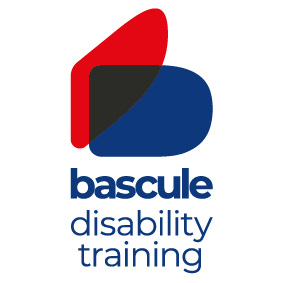Case in Point: The cost of ignoring the need for reasonable adjustments

In this Case in Point feature, we are looking at an employment tribunal case involving Mersey Care NHS Foundation Trust and their former employee, a community nurse, who suffered a brain haemorrhage.
This particular case presents a perfect example of the importance of making timely reasonable adjustments in the workplace, and the potential consequences of ignoring them…
The Case
In December 2016, a community health nurse (with around 25 years of service), experienced a life-altering brain haemorrhage. This resulted in the staff member needing a 17-month recovery period, after which they returned in May 2018. When returning, the member of staff experienced many new challenges due to memory problems, resulting in difficulties concentrating and an inability to multitask. This eventually led to another period of absence in October 2019.
In February 2020, the staff member came back to work, but was this time supported by an Access to Work assessment that recommended specific reasonable adjustments. Access to Work recommended that the employer make reasonable adjustments of funding support including a Dictaphone with appropriate training; digital note equipment and software with appropriate training, and noise cancelling headphones. These were suggested to aid memory and as a tool for meetings.
However, Mersey Care NHS Foundation Trust delayed making these suggested adjustments, and some were still not in place ten months after their return. In addition the staff member was given duties that contradicted the agreed adjustments and they often worked without any support, making their condition worse. The claimant complained that he was left alone with patients and felt unsafe at work and was asked to fill in to perform the role of Caseload Holder in the absence of a colleague who had taken emergency childcare leave.
The cumulative effect of all of this, led to a deterioration in the staff member’s overall mental health, resulting in social anxiety, loss of confidence, and ultimately, early retirement due to ill health.
The Tribunal’s Findings
The employment tribunal found that Mersey Care NHS Foundation Trust failed to fulfil its statutory obligations under the Equality Act 2010 by not making timely reasonable adjustments. This failure contributed towards making the staff member’s health worse, enhancing their injury all of which led to a premature retirement.
The tribunal awarded the staff member over £200,000 in compensation, covering injury to feelings, personal injury, loss of earnings, pension loss, and care costs.
Lessons Learned
This case highlights several critical lessons for employers:
- Timeliness of Adjustments: When it comes to implementing reasonable adjustments, any delays can have severe consequences for an employee's health and career development.
- Keep your promise: It is critical that Employers honour any decisions, recommendations and agreements around reasonable adjustments and avoid assigning new duties that could potentially make an employee's condition worse.
- Provision of Staff Training: As we always say at Bascule – Training is King. If the staff member’s line managers and senior colleagues would have had a broader understanding of reasonable adjustment and the Equality Act 2010, or simply had a more empathetic view of disability- things would have likely been different.
- Legal Compliance: As always with all similar disability cases- a failure to comply with the Equality Act 2010 can result in significant legal and financial repercussions, and large compensation fees that could have been avoided!
Tips for Employers
To prevent similar situations, employers should:
- Develop Clear Policies: Establish and communicate clear policies regarding reasonable adjustments and ensure they are consistently applied.
- Engage in Open Dialogue and Don’t Delay: Always maintain ongoing communication with employees who need adjustments- as their needs may well change. To understand and address their needs effectively, don’t ever ignore or sideline their issues- communication is key. A delayed response regrettably caused Mersey Care NHS Foundation Trust £200k!
- Provide Training: Offer training for both management and staff on disability awareness and the importance of reasonable adjustments- and make sure they understand what they are, how they are implemented and why time is of the essence!
- Monitor progress: Once undertaken, regularly review and monitor any adjustments and ask – are they working? If not- consider alternatives. Ask yourself, are line managers adhering to that person’s needs? Are other tasks being put on to that staff member that are impacting their health? It’s imperative that these adjustments meet their intended needs, so check in regularly and record any results.
In summary …
This case- and many others like it – demonstrate the importance of making timely and effective reasonable adjustments. Employers must recognise their legal and ethical responsibilities to create inclusive workplaces that accommodate the needs of their whole workforce. This involves training, clear policies, efficiency, effective management and good communication.
If you would like to look at this case in finer detail – you can find it by clicking THIS LINK



